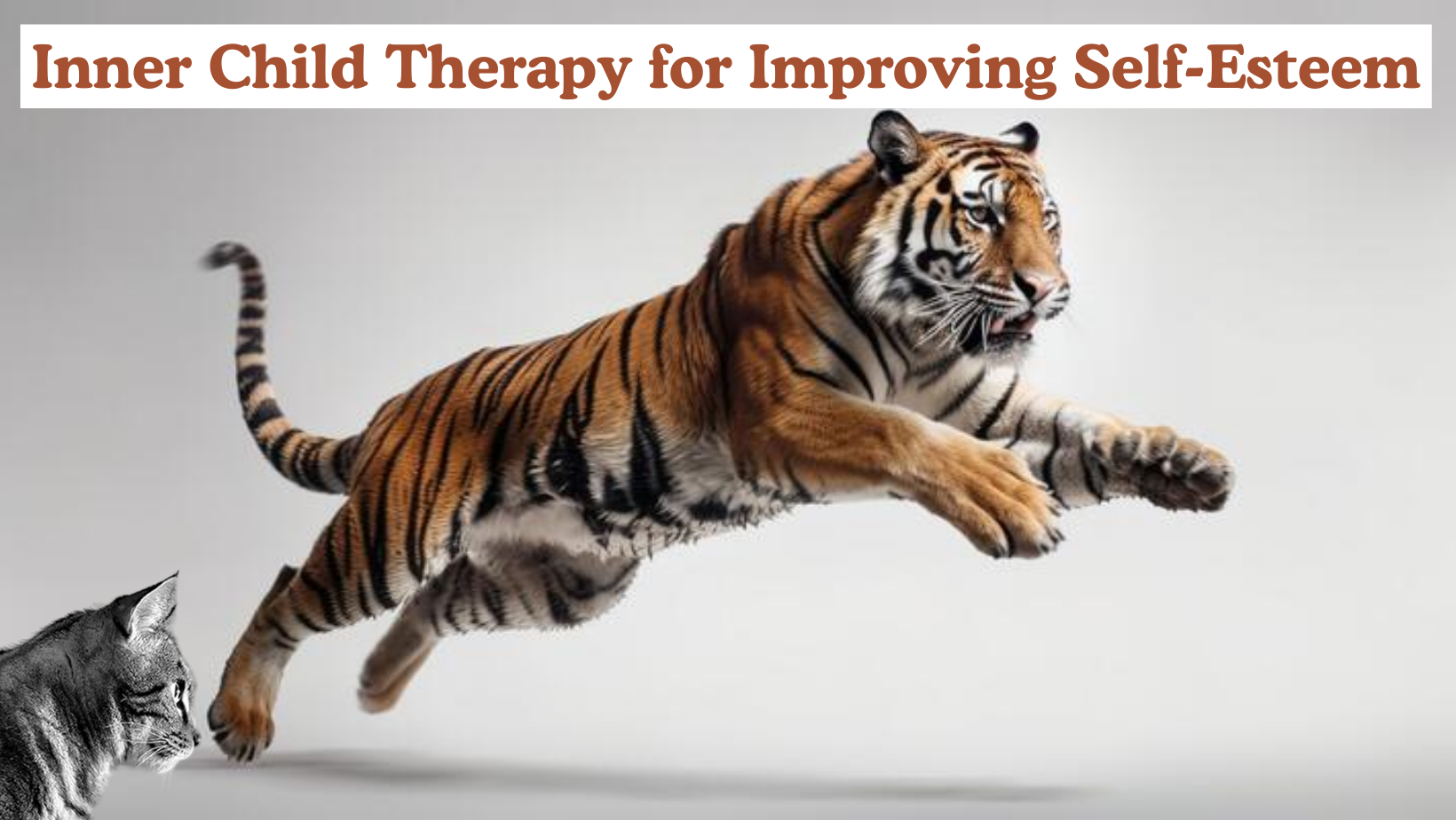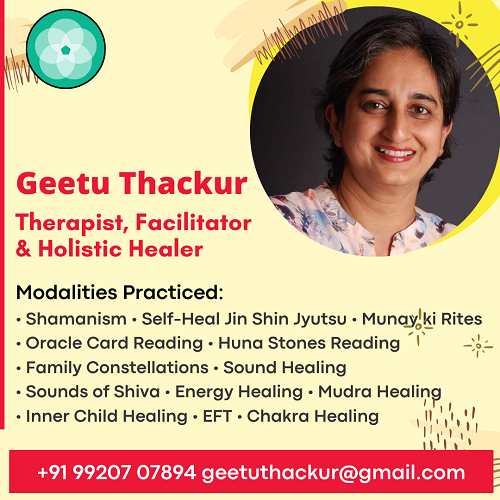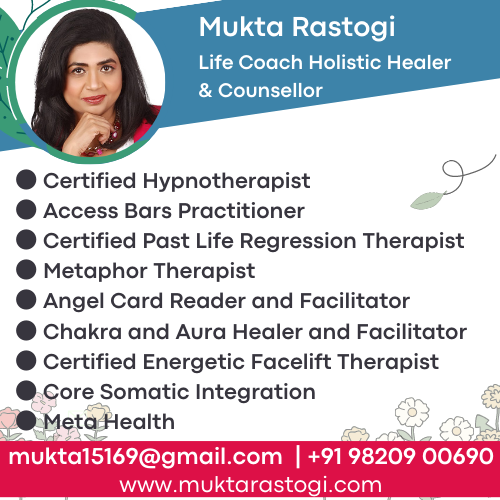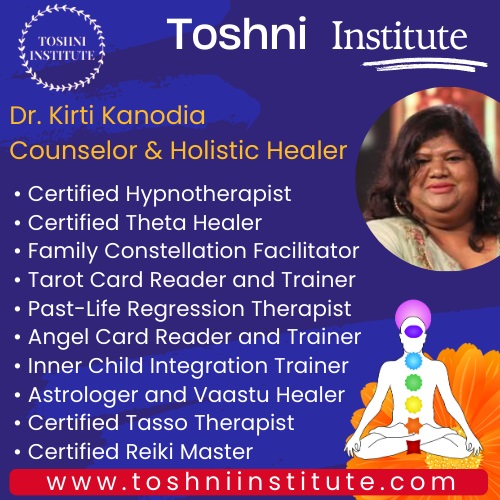Alternative Therapies
- Alternative Medicine
- Access Bars
- Access Body Processes
- Access Consciousness
- Access Energetic Faclift
- Acupressure
- Acupuncture
- Akashic Records
- Ancient Magnetism
- Angel Healing
- Aromatherapy
- Aura Reading
- Ayurveda
- Bach Flower Remedies
- Blueprint Numerology
- Breathwork
- Chakra Healing
- Cosmetic Acupuncture
- Crystal Healing
- Cupping Therapy
- Divine Healing Hands
- Distance Healing
- Emotional Freedom Technique (EFT)
- Energy Healing
- Energy Medicine
- Ergonomics
- Family Constellation
- Face Reading
- Fengshui
- Gaiadon Heart
- Geomancy
- Heal Your Life
- Graphology
- Holistic Solutions
- Holy Fire Reiki
- Homeopathy
- Ho'oponopono
- Humkara with Haleem
- Hypnotherapy
- Inner Child Therapy
- Intuitive Reading
- Jesus Reiki
- Jikiden Reiki
- Jin Shin Jyutsu
- Karuna Reiki
- Karmic Healing
- Lama Fera
- Lenormand Cards
- Light Language Healing
- Law of Attraction
- Manual Therapy
- Matrix Reimprinting
- Metaphor Therapy
- Meditation
- Mediumship
- Melchizedek Method
- Merlin Trinity Healing
- Merkaba Healing
- Mokshapat Reading
- Money Reiki
- Motivational Counseling
- Mudra Healing
- Nakshatra Energies
- Naturopathy
- Neuro Linguistic Programming (NLP)
- Numerology
- NumeroVastu
- Oracle Cards
- Panchakarma (Ayurveda)
- Panchkarma Holistic Healing - Mind Control
- Past Life Regression
- Pendulum Dowsing
- Physiotherapy
- Pranic Healing
- Pranic Psychotherapy
- Pythagorean Numerology
- Quantum Touch Healing
- Pyramids
- Redikall Healing
- Reiki
- Rudraksh
- Runes
- Soul Plan Reading
- Sound Healing
- Star Magic Healing
- Space Clearing
- Sujok therapy
- Tarot
- Theta Healing
- Twin Flame Healing
- Twin Hearts Meditation
- Unani Medicine
- Yoga
- Wicca
- Womb Healing
Diseases & Conditions
- Acne & Pimples
- Allergies
- Arthritis
- Asthma
- Behavioural Disorders
- Cancer
- Dandruff
- Diabetes
- Emotional Problems
- Gallstones
- Gastritis
- Hairloss
- Heart Diseases
- Hormonal Problems
- Hypertension
- Immune Disorders
- Infections
- Infertility
- Jaundice
- Kidney Disorders
- Liver Disorders
- Menstrual Disorders
- Migraine
- Neck & Back Pain
- Obesity
- Osteoporosis
- Peptic Ulcer
- Prevention
- Prostate Problems
- Psoriasis
- Sexual Dysfunctions
- Sinusitis
- Sleep Disorders
- Skin Diseases
- Stress
- Thyroid Disorders
- Ulcerative Colitis
- Urinary Infections
General Wellness
Inner Child Therapy for Improving Self-Esteem - Mumbai
Dr. Geetanjali Saxena.

Past life Regression Trainer, Family Constellation Trainer, Theta Healing Trainer, Inner Child Work, Angel Therapist, Reiki healer, Hypnotherapy, Crystal Healing, Graphology, Tarot card reader & Astrologer


Geetu Thakur
Geetu is a certified and well versed in Sound bowl Healing, Sounds of Shiva, Bhairavi Yantra, Family Constellations, Jin Shin Jyutsu as a Self-Healing Modality and is a Reconnective Healing Facilitator...


Divine Light Healing & Training Centre - Ms. Asha A Doshi
Asha A Doshi is the founder and sole creator of a platform "Divine Light Healing & Training Centre" for all the light workers to come together and explore spirituality. Born with intuitive gifts of healing and teaching, she has spent her life learning, practicing, teaching and integrating diverse arts of making life a beautiful journey.


Ms. Mukkta Jain
Mukkta Jain is a Life coach, Counsellor, Certified Hypnotherapist, Access Bars Practioner, Certified with Dr Brain Weiss in Past Life Regression, trained in Metaphor Therapy and Angel Card Reader. She is Proactive and dynamic spiritual healer.

Inner Journeys

A Certified Past Life Regression Therapist, Healer, psychic and channel, who has been working in the field of channelled spiritual direction since ...


Dr. Kirti Kanodia
Dr. Kirti Kanodia is a certified Theta Healer, Trained Family Constellation Facilitator, Tarot card Reader, Past life Regression Therapist, Angel card reader, Inner child integration, Vedic Astrologer, Tasso Therapist and Reiki Master.

Cosmicx Healing Art - Ms. KripaJyoti Nisha Singla

KripaJyoti Nisha Singla (PGDBM) is a Spiritual master, Energy worker, Reiki Master, Theta Instructor, and a dedicated Artist who has been working in the field of healings, spirituality, counselling, relationship healing, family therapy and alternative medicine therapies from more than 12 years.

Innerchild Therapy for Improving Self-Esteem

Innerchild Therapy for Improving Self-Esteem
Inner child therapy is a powerful approach for improving self-esteem. It focuses on healing and nurturing the part of you that holds onto childhood experiences and emotions. Here’s how it can help and some steps you might take:
Understanding Inner Child Therapy
1. Concept of the Inner Child: The inner child represents the part of you that retains your childhood experiences, feelings, and unmet needs. Issues from your early years can impact your self-esteem and overall well-being.
2. Goal: The goal of inner child therapy is to address and heal these past wounds, provide the nurturing and validation that you may not have received, and help you integrate these aspects into your adult self.
How Inner Child Therapy Can Improve Self-Esteem
1. Healing Old Wounds: By addressing past traumas or unmet needs, you can start to heal the emotional wounds that affect your self-worth. This healing process often involves revisiting past experiences, expressing and processing emotions, and re-framing these experiences with a more compassionate perspective.
2. Self-Acceptance: Inner child therapy helps you learn to accept and love yourself by addressing the parts of you that may feel inadequate or unworthy. It’s about nurturing these parts and understanding that your worth is inherent, regardless of past experiences.
3. Reparenting: This involves providing the care, love, and support that your inner child needs. By reparenting yourself, you learn to treat yourself with kindness and respect, which can significantly boost your self-esteem.
4. Building Positive Self-Talk: Working with your inner child helps you develop a more positive and compassionate inner dialogue. This new way of talking to yourself can reinforce your self-worth and confidence.
Steps for Inner Child Work
1. Connect with Your Inner Child: Start by identifying and connecting with your inner child. This might involve visualization exercises where you picture your younger self and engage in a dialogue with them.
2. Identify Needs and Emotions: Reflect on what your inner child needs and what emotions might be surfacing. This could involve journaling about your childhood experiences and how they affect you now.
3. Nurture and Reassure: Offer comfort and reassurance to your inner child. This can be done through self-care practices, affirmations, and by addressing any unmet needs you identify.
4. Seek Professional Help: A therapist specializing in inner child work can provide guidance and support. They can help you navigate complex emotions and develop strategies for self-compassion and healing.
5. Integrate Insights: Work on integrating the insights and healing from your inner child work into your daily life. This includes practicing self-care, setting healthy boundaries, and reinforcing positive self-talk.
Practical Exercises
1. Inner Child Visualization: Spend time in a quiet space visualizing your younger self. Imagine holding, comforting, or talking to them. Notice any emotions or messages that arise.
2. Letter Writing: Write a letter to your inner child expressing love, understanding, and reassurance. You might also write a letter from your inner child to your adult self to understand their needs better.
3. Memory Exploration: Revisit positive and negative childhood memories. Reflect on how these experiences have shaped your self-esteem and how you can reframe them with a supportive perspective.
4. Creative Expression: Engage in creative activities that your inner child enjoys, such as drawing, playing, or creating. This helps reconnect with your authentic self and fosters self-expression.
By nurturing your inner child, you can build a stronger foundation for self-esteem and overall well-being. It’s a journey of self-discovery and healing that can lead to profound personal growth.









